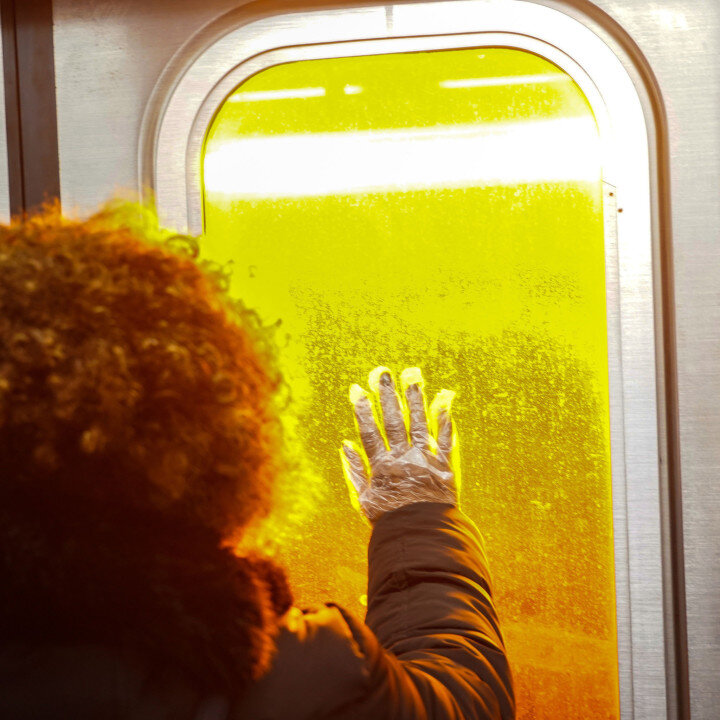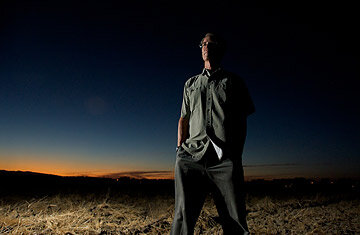Coronavirus reveals our reliance on each other, and on biological nature - says Kim Stanley Robinson, N. Katherine Hayles, Lara Salahi
Chang W. Lee / New York Times
Some excerpts from recent big-picture pieces on the Coronavirus and its consequences.
Kim Stanley Robinson: the experience of Covid-19 is the reality of citizenship smacking you in the face
From The New Yorker:
We are individuals first, yes, just as bees are, but we exist in a larger social body. Society is not only real; it’s fundamental. We can’t live without it. And now we’re beginning to understand that this “we” includes many other creatures and societies in our biosphere and even in ourselves.
Even as an individual, you are a biome, an ecosystem, much like a forest or a swamp or a coral reef. Your skin holds inside it all kinds of unlikely coöperations, and to survive you depend on any number of interspecies operations going on within you all at once.
We are societies made of societies; there are nothing but societies. This is shocking news—it demands a whole new world view. And now, when those of us who are sheltering in place venture out and see everyone in masks, sharing looks with strangers is a different thing.
It’s eye to eye, this knowledge that, although we are practicing social distancing as we need to, we want to be social—we not only want to be social, we’ve got to be social, if we are to survive.
…The neoliberal structure of feeling totters. What might a post-capitalist response to this crisis include? Maybe rent and debt relief; unemployment aid for all those laid off; government hiring for contact tracing and the manufacture of necessary health equipment; the world’s militaries used to support health care; the rapid construction of hospitals.
What about afterward, when this crisis recedes and the larger crisis looms? If the project of civilization—including science, economics, politics, and all the rest of it—were to bring all eight billion of us into a long-term balance with Earth’s biosphere, we could do it.
By contrast, when the project of civilization is to create profit—which, by definition, goes to only a few—much of what we do is actively harmful to the long-term prospects of our species. Everyone knows everything. Right now pursuing profit as the ultimate goal of all our activities will lead to a mass-extinction event.
Humanity might survive, but traumatized, interrupted, angry, ashamed, sad. A science-fiction story too painful to write, too obvious. It would be better to adapt to reality.
Economics is a system for optimizing resources, and, if it were trying to calculate ways to optimize a sustainable civilization in balance with the biosphere, it could be a helpful tool.
When it’s used to optimize profit, however, it encourages us to live within a system of destructive falsehoods. We need a new political economy by which to make our calculations. Now, acutely, we feel that need.
It’s a new feeling, this alienation and solidarity at once. It’s the reality of the social; it’s seeing the tangible existence of a society of strangers, all of whom depend on one another to survive. It’s as if the reality of citizenship has smacked us in the face.
N. Katherine Hayles: a simple binary of us-versus-them, humans versus viruses, is far too simple
From Critical Inquiry:
The present situation [is] a pitched battle between different evolutionary strategies. On the human side are the advantages of advanced cognition, including ventilators, PPE, and of course, the race to find a vaccine.
On the coronavirus side are the advantages of rapid replication enabled by a very short genome, and extreme contagion through its ability to disperse through the air and to live for many hours on a variety of surfaces.
Recent research has indicated that people may be most contagious before they show symptoms, which has been led to this coronavirus being labeled a stealth virus. (Perhaps the stealth strategy evolved to ensure maximum spread through a population before individuals became too sick to move about.)
In evolutionary terms, the novel coronavirus has hit the jackpot, having successfully made the leap from bats in the planet’s most populous large mammal, humans. Comparing the two strategies so far, the score is staggeringly one-sided: coronavirus, 140,000 and counting; humans, 0.
Amidst all the pain, suffering, and grief that this virus has caused humans, are there any lessons we might learn, any scrap of silver lining that we can snatch from the global chaos and wreckage?
In addition to imposing reality-based constraints on political discourse, the virus is like being hit across the head by a 2X4; it reminds us with horrific force that although humans are dominant within our ecological niche, many other niches exist that may overlap with ours and that operate by entirely different rules.
It screams at jet-engine volume that we are interdependent not only with each other but also with the entire ecology of the earth.
And finally, it makes devastatingly clear how unprepared we are: unprepared to cope with the virus’s effects, of course. But equally importantly, unprepared to meet the philosophical challenges of reconceptualizing our situation.
We need something that does justice both to the unique abilities of humans, and to the limitations and interdependencies upon which those abilities depend.
This interdependence is illustrated through the new kinds of origin stories being written about the emergence of life on earth. The recent discoveries of ancient giant viruses, with genomes almost as large as bacteria, suggest that they may have played a crucial role.
These giants contain genes that encode for translation machinery, something previously believed to exist only in cellular organisms. Moreover, they include multiple genes that encode for enzymes catalyzing specific amino acids, another task that cells perform.
Investigating these complexities, recent research is accumulating evidence that virus-like elements may have catalyzed some of life’s critical stages, including the evolution of DNA, the formation of the first cells, and the evolutionary split into the three domains of Archaea, bacteria, and eukaryotes.
In addition to the participation of viruses in life’s beginnings, another kind of interdependence has been the discovery of ancient virus DNA within human stem cells.
Stem cells are crucial to human reproduction because they are pluripotent, having the ability to transform into all the different kinds of cells in the body as the fetus grows.
Recent studies have found that one class of endogenous retroviruses, known as H. HERV-H, has DNA that is active in human embryonic stem cells but not in other types of human cells.
Moreover, researchers have discovered that if this activity is suppressed by adding bits of RNA, the treated cells cease to act like stem cells and instead begin to act like fibroblasts, cells common in animal connective tissues.
Without the pluripotency provided by stem cells, human reproduction could not work. Ironically then, the viral contamination that is posing a deadly threat to contemporary humans is also, in another guise, critical for human reproduction.
These complexities suggest that a simple binary of us-versus-them, humans versus viruses, is far too simple to be an adequate formulation for understanding our relation to each other and to the larger ecologies within which we are immersed.
We need to thoroughly reconceptualize the concepts and vocabularies with which to describe and analyze these complex interdependencies, as well as the ways in which humans, as a species, are interdependent with one another as well.
The pandemic offers an opportunity to rethink the ways in which we can identify with each other and with life forms radically different from us.
As a start, I would like to suggest three terms for consideration.
The first is humans as species-in-common, an idea emphasizing the commonalities that all humans share with one another, notwithstanding all the ethnic, racial, geopolitical, and other differences that exist between us.
We can see flashes of this idea throughout history, including in the present pandemic—a situation that overruns all borders and geopolitical differences, to strike at humans everywhere.
The second term is species-in-biosymbiosis, an idea recognizing the ways in which different species interpenetrate, for example bacteria in the human biome.
The third is species-in-cybersymbiosis, emphasizing the ways in which artificial agents, especially artificial intelligences, are actively collaborating with humans to shape our shared world.
I offer these brief sketches as a first pass at what a more adequate framework might look like.
Notwithstanding its devastating effects, the pandemic invites us to think new thoughts, try out novel ideas, and suggest formulations that can lead to better futures for us and for the more-than-human organisms with which we share the planet.
Lara Salahi: What does Ebola teach us about Covid? That viruses do not recognize borders or ideologies. And that we need a better “outbreak culture”
From Huffington Post:
Medical historian Charles Rosenberg describes an epidemic unfolding in three stages or acts.
The first is revelation, where communities gradually accept the presence and spread of the disease.
The second is managing randomness, where people try to identify a cause and blame others
The third is negotiating public response when, finally, measures are taken to control the epidemic.
Enter COVID-19. The scenario again unfolds like a scripted screenplay, this time with a different virus.
During the Ebola crisis In West Africa, messages displayed across billboards, spray-painted on walls, announced on radio ads and printed across T-shirts implored people to take the virus seriously. “Ebola is real!” the message conveyed.
Many people in some parts were already skeptical of the government and foreign agencies after having recently endured a civil war. In some cases, the skepticism and distrust led to violent resistance of outbreak responders entering neighborhoods to help trace and detect the disease.
Many outside of West Africa who had watched the Ebola outbreak unfold criticized communities that were the hardest hit for not complying with social distancing and resisting other public health measures that discouraged people from participating in age-old traditional and cultural practices, such as funerals and religious celebrations.
Some of the same reactions have taken hold in the U.S., as Americans grapple with the coronavirus affecting their community structure and way of life.
Like Ebola, some Americans still do not believe in the existence or severity of COVID-19, the disease caused by the coronavirus. Disinformation campaigns chalk it up to a variation of the flu. In some parts of the country, places of worship keep operating and group gatherings continue, defying public health directives to stay home.
Health workers monitor the health of a patient in a quarantine cube at an Ebola treatment center in Beni, Congo. Photo by: World Bank / Vincent Tremeau / CC BY-NC-ND
The major challenges recounted to us during the Ebola outbreak had little to do with the virus itself. Instead, the virus was a lethal backdrop to the actions and, at times, inactions of individuals, groups, agencies and organizations during the intense environment of outbreak response. Although lessons were learned during the Ebola outbreak, the culture of response has not changed and some of the same challenges apply.
Months passed between information and action with Ebola, in part because information was concealed and controlled. Fear of the social and economic consequences also paralyzed necessary action. The virus raged and ravaged until countries and agencies could no longer turn away. Even as response ramped up, collaborative efforts were stifled by pointing fingers for the dangerous delay.
Placing blame on people and agencies during the COVID-19 response is not only adding to the chaos and confusion, but stalling the critical mindset and resources needed in this global fight against the only thing that should be fought against: the virus. Inconsistent messages and response measures ― this time in the midst of an election year ― have again turned outbreak response into a political tug-of-war.
Governments and agencies have time and again chosen to rely on responding after the fact rather than investing in readiness, and that has served as a prime breeding ground for our current outbreak culture.
Favoring response can fuel a culture driven by political motivation, life-threatening fear, personal gain and isolation. Behaviors as a consequence of this culture can lead to confusion, collusion and culpability amid an already chaotic environment. Loss of human life has again become the consequence…
The parallel experiences drawn from past outbreaks, and now COVID-19, serve as another reminder to me that we are one global community. The health of one person in the world can quickly matter to the health of every person anywhere in the world.
Viruses do not recognize national borders, nor do they recognize political, social, ethnic or religious differences. If we are to effectively combat outbreaks, we must shift our culture to operate the same way.
It is possible to alter the culture of outbreak response, but it is not something that can be done during the pandemic. The quiet space between epidemics offers the best chance to build up a state of perpetual preparedness…
The Ebola outbreak is in some ways a looking glass into the future of life with ― and possibly after ― COVID-19.
The fallout from Ebola was significant. Entire social and health care systems collapsed in the hardest-hit countries in West Africa and the rebuilding of community and health systems continues to this day.
Many who lived through the Ebola epidemic in the hardest-hit areas witnessed the societal breakdown and emotional trauma that accompanied the outbreak.
An upsurge in the incidence of mental health disorders occurred, including depression, anxiety, post-traumatic stress and substance abuse. Now, as an invisible contagion continues to spread quick and wide, major psychosocial consequences to the halting of “normal life” likely will result.
Every outbreak I have reported on has served as a traumatic reminder to me of human fragility; the horrific manifestation of some of the diseases continue to play out in my mind.
This pandemic is also a reminder of how familiar outbreak environments have become. We are gradually, albeit reluctantly, accepting its presence and negotiating a difficult response.





